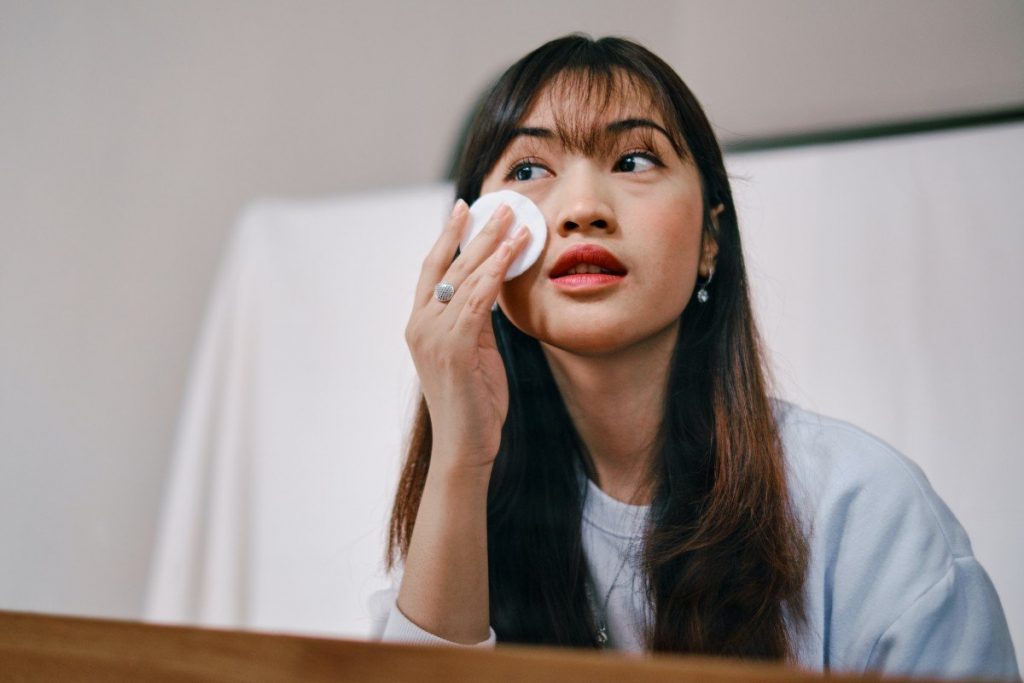
How to Choose The Right Cleanser for Your Skin – Women’s Concepts
Knowing how to choose a cleanser according to your skin type is the basic need of any skincare enthusiast. A cleanser might not stay in contact with the skin as leave-on products do, yet picking an unsuitable formula might disrupt your barrier or clog your pores.
Regardless of how many steps your routine has, cleansing is unskippable, prepping the perfect canvas for the rest of your skincare. So to make this must-step more satisfying and actually help you get the most out of it, we decided to teach you how to choose the right cleanser.
How to choose a cleanser for oily skin
Oily skin translates into excess sebum, clogged (and large) pores, and maybe breakouts. Most importantly, a cleanser suitable for oily skin should not block pores, so look for non-comedogenic formulas. In terms of texture, pick a foaming face wash as these can get deeper into the pores, where they remove junk, oil, and makeup.
However, keep in mind that foaming cleansers tend to dry the skin, so it’s important not to strip away too much moisture either. When oily skin gets dehydrated, the sebaceous glands start to produce more oil in an attempt to make up for the loss. So, make sure your cleanser contains hydrating elements, such as hyaluronic acid, green tea, and lactic acid. To balance oil and help pores unclog, your face wash should also include salicylic acid, willow bark extract, or clay. Charcoal cleansers are another go-to for oily skins as they help sop up sebum and remove toxins.[1]
Cleansers for oily skin:
- CeraVe Foaming Facial Cleanser
- Boscia Detoxifying Black Charcoal Cleanser
- First Aid Beauty Skin Rescue Deep Cleanser
How to choose a cleanser for acne-prone skin
Picking the right cleanser for breakout-prone skin can be tricky as you want something to deeply clean impurities, sunscreen, and makeup while not irritating or disrupting the pH. Ledger textures, like gels, perform best for you as they are lightweight. Besides, a good face wash for acne-prone skins should include salicylic acid, benzoyl peroxide, or glycolic acid.[2] All these agents can help speed up pimples’ healing and ease inflammation.
Furthermore, when your skin is prone to blemishes, it is most likely sensitive, so it’s important that the cleanser doesn’t strip away the necessary moisture but adds some hydration through ingredients like glycerin and sodium hyaluronate. A cleanser alone won’t eliminate acne, but it can support the rest of your skincare by removing all traces of dirt, balancing skin, and reducing excess sebum and bacteria.
Cleansers for acne-prone skin:
- SkinCeuticals LHA Cleansing Gel
- Murad Acne Control Clarifying Cleanser
- Neutrogena Acne Proofing Daily Gel Cleanser
How to choose a cleanser for dry skin
If you feel your skin tight and dry after washing your face, you know you’re not using the right formula. When choosing a cleanser for dry skin, it’s deadly important to consider the texture as a harsh one can strip away too much moisture and might leave you with more dryness than ever before. Hence, creamy, balm-like, and lotion face washes should be on your radar. Also, cleansing oils made for dry skin help relieve dryness and lock moisture in, preventing dehydration. Your priority is that your cleanser dissolves residues and makeup while infusing skin with humectants and emollients like hyaluronic acid, aloe vera, honey, squalane, and tocopherol. Avoid cleaners that contain soap as they can dry and irritate your skin.[3]
Cleansers for dry skin:
- The Ordinary Squalane Cleanser
- Then I Met You Living Cleansing Balm
- Elemis Superfood AHA Glow Cleansing Butter
How to choose a cleanser for sensitive skin
Sensitive complexions will benefit most from a gentle cleanser created to help skin retain moisture and strengthen the barrier while washing away without leaving a trace. It’s important that your face wash doesn’t strip the skin of its natural oils, nor dries it, so dodge formulas with fragrances, SLSs, and drying alcohols. A mild gel, milk, or oil face wash performs wonders for reactive skin, and if it’s boasted with shea butter, squalane, aloe, and argan milk, you hit it big. Steer clear from face washes that contain soap, such as sodium stearate, or SLSs as these are known to disturb the barrier, and cause dryness and itchiness, especially in sensitive skins.[4]
Cleansers for sensitive skin:
- Tammy Fender Cleansing Milk
- Ren Evercalm Gentle Cleansing Milk
- Milk Makeup Vegan Milk Cleanser
How to choose a cleanser for mature skin
Mature skin is all about moisture loss, fine lines, wrinkles, and dark spots. So, when choosing a cleanser for mature skin, it’s essential to spot moisture-trapping, resurfacing, and brightening agents. Retinol, glycolic acid, vitamin E, panthenol, glycerin, and hyaluronic acid likely benefit the most aging skin.[5] Always go for mild cleansers, milk, gels, or oil-like textures that won’t dehydrate your skin but remove junk and debris gently.
Cleansers for mature skin:
- Pixi Skintreats Retinol Jasmine Cleanser
- Elemis Pro-Collagen Cleansing Balm
- Indie Lee Brightening Cleanser
- Kavya Kabra, Ismaeel Khan, Anamika Paul*, Maham Malik, Sanjni Mehrotra, Shipra Giri, Galgotias University, Preparation of Face Wash Using Activated Charcoal and Green Tea Extracts
- Leyden JJ, Wortzman M, Baldwin EK. Antibiotic-resistant Propionibacterium acnes suppressed by a benzoyl peroxide cleanser 6%. Cutis. 2008 Dec;82(6):417-21. PMID: 19181031.
- Mukhopadhyay P. Cleansers and their role in various dermatological disorders. Indian J Dermatol. 2011;56(1):2-6. doi:10.4103/0019-5154.77542
- Santa Cruz Biotechnology, Inc. 2145 Delaware Avenue, California 95060 Material Safety Data Sheet, Sodium Stearate
- Brooks J, Cowdell F, Ersser SJ, Gardiner ED. Skin cleansing and emolliating for older people: A quasi-experimental pilot study. Int J Older People Nurs. 2017 Sep;12(3). doi: 10.1111/opn.12145. Epub 2017 Jan 12. PMID: 28078772.